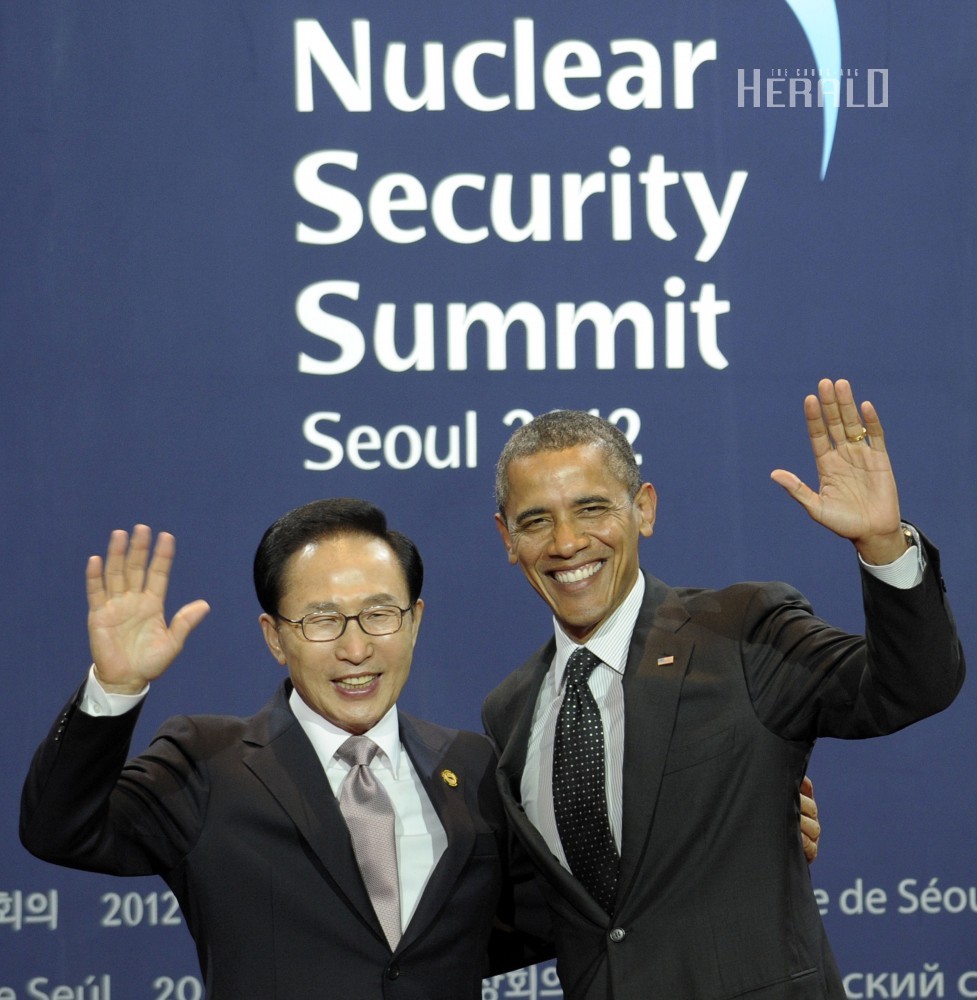The 2012 Nuclear Security Summit was held from March 26th to 27th at the in COEX conference hall in, Seoul. This is the second summit following the 2010 Nuclear Security Summit held in Washington DC. Korea is proud to have hosted the largest international conference in its history, gathering 58 world leaders to the table. 53 heads of state along with chiefs of international organizations such as International Energy Agency participated in the summit.

The main objective of the summit was to ensure nuclear safety. Below are the three main issues covered at the summit.
1. Cooperative measures to combat the threat of nuclear terrorism
2. Protection of nuclear materials and related facilities
3. Prevention of illicit trafficking of nuclear materials
Despite the best intentions and well-conceived initiatives of the summit, certain civic groups and political parties were opposed to the 2012 Nuclear Security Summit. Consequently, they have formed a “No Nukes” Coalition and have held demonstrations demanding a “nuclear-free world.” Both historically and fundamentally there is no reason to oppose the 2012 Nuclear Summit, which aims at safe management and peaceful use of nuclear weapons. What, then, are the reasons behind the activists and their repugnance towards the nuclear summit?
To begin with, North Korea (NK) has always been notorious for its nuclear weapons program and countless threats on its neighboring countries. Recent test-launch of short-range missiles has raised concerns at the national level. Ignoring warnings from the United States, Japan, and Korea, North Korea is in its final stages of preparing the actual launch in mid April. In the same way, Iran is posing threats to the global world with its nuclear weapons. Danny Avalon, Israel’s deputy minister of foreign affairs said, “It is not just Israel against Iran. It’s Iran against the world community. Iran has global ambitions. It’s the responsibility of the world community to stop it.”
Thus it can be said that the first main issue of the summit- cooperative measures to combat the threat of nuclear terrorism- is to keep a close watch on NK and Iran, simultaneously pressuring them to disarm all nuclear weapons. However, neither NK nor Iran participated in the summit. Many activists believe this is a huge flaw and are disgruntled at the absence of the core problem itself. They believe it illogical to seek solutions without the presence of these two countries in the summit.
Consequently, in the aftermath of the nuclear disaster of Fukushima, many questioned the necessity of operating nuclear reactors. Those who opposed to the 2012 Nuclear Security Summit found the second issue a mere paradox. Some local activists have said, “The summit calls for a world without nuclear weapons, but didn’t address the plan to scrap nuclear reactors as well as nuclear weapons. Having said that, the goal of the summit is no more than an empty slogan.” The anti nuclear activists believe that there will be no form of “safe” nuclear power unless nations agree to demolish all existing nuclear power plants.
Thus, the activists claim that the summit is not promoting security at all. Instead, they see the summit as a way to yield privileges to the nations so that they can make more money for the nuclear industry. Instead of giving the strong nations the upper hand of exploiting nuclear weapons and other nuclear related researches, some activists demand that all nations must invest money in renewable energy sources and ultimately stop any construction of nuclear power plants.
To the advocates of the nuclear summit, the stationed protests by the anti- nuclear activists may be nothing more than crossing the fine line of becoming irrationally radical. Their demands on absolute abolition of nuclear weapons and rejection on further operation of all nuclear power plants are idealistic in a way that fails to consider the reality, making it impossible to implement. However, as is with all matters in life, there are apt to be collision. We thus have to find the optimal point on which the two opposing sides can reconcile. The on-going debate upon the abolition of nuclear weapons is, to say the least, only just begun.

